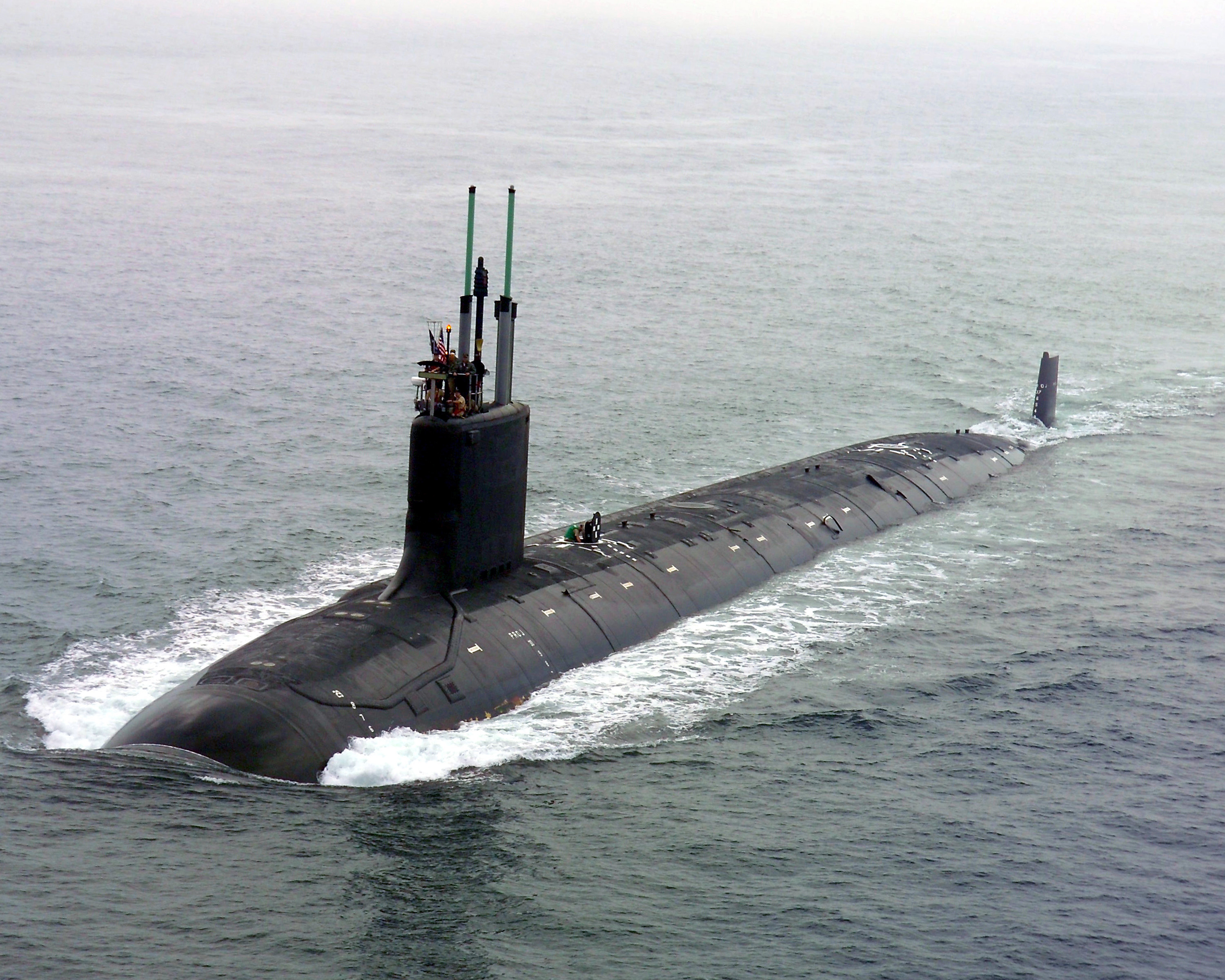US nuclear attack submarines and navy warships should be based in Perth in response to China’s growing power projection into the Indo-Pacific, a new US report warns.
The report says Australia and its allies must “spotlight and push back” against China’s stepped-up efforts to project power and build military infrastructure in the region. Otherwise, it warns, Beijing’s behaviour may “upturn longstanding assumptions about the Indo-Pacific region remaining free and open”.
The strongly worded report by Washington’s Centre for Strategic and International Studies was written by Michael Green, the former director of Asian affairs at the National Security Council under George W. Bush, and by Andrew Shearer, former national security adviser to prime minister Tony Abbott.
It comes amid fears in Washington that China is taking a more assertive role in projecting military power across the Indo-Pacific region, including building new infrastructure, and is wielding its economic clout to secure favourable strategic outcomes.
The report also comes a week after it was revealed that three Australian warships were challenged by the Chinese military as they travelled through the disputed South China Sea early this month.
Tensions between Australia and China have risen sharply, with China’s ambassador to Australia warning last week that the relationship between the two countries had been marred by “systematic, irresponsible and negative remarks” about China.
Beijing has not hosted a senior Australian minister for several months and was highly critical of Malcolm Turnbull’s new security laws announced last year to protect Australia from foreign interference.
Former prime minister Kevin Rudd this week further accused the current Prime Minister of undermining Australia’s relationship with China, saying Mr Turnbull’s public remarks about our largest trading partner were tantamount to “punching the Chinese in the face”.
But the CSIS report warns that China’s behaviour in the region needs to be challenged by Australia and its allies. “China’s military penetration into the South Pacific would challenge one of the oldest and most fundamental tenets of Australian strategic doctrine, the exclusion of outside military powers from its island approaches,” the report says.
It says China is building extensive maritime infrastructure in the South Pacific, Southeast Asia and the Indian Ocean that supports its large merchant fleet and opens up military options that could destabilise the region.
“Much of it could be used to support increasing power projection operations in the region by the People’s Liberation Army-Navy.
“The United States and its region allies and partners need to pay attention and develop a more coherent and effective response,’’ the report says.
To counter this, the CSIS calls for a range of measures, including a rotational presence of US warships at HMAS Stirling in Perth.
It also calls on the Turnbull government to “consider the possibility of investing in the nuclear support infrastructure necessary for the basing of (US) attack submarines as well”.
These military options have been considered by the Turnbull and Abbott Coalition governments and by the Gillard and Rudd Labor governments but they have never been acted upon.
But Mr Shearer said the time was now right for a bigger US military presence at HMAS Stirling.
“US military aircraft and Marine forces are already operating from facilities in Australia’s north under the US Force Posture Initiatives,” he told
The Australian in Washington. “It makes sense to add a naval component, and this has been under discussion for a number of years. It is time to press forward with greater urgency
“The RAN’s Fleet Base West at HMAS Stirling, south of Perth, is ideally situated to support a rotating US naval presence. It already has some relevant infrastructure in place and there is room for expansion. It has a large offshore exercise area and offers direct bluewater access to the Indian Ocean and its critical sea lanes.
“Australian and American naval forces operating from Western Australia would be well placed to build closer co-operation with the Indian navy, to maintain a greater presence in the Indian Ocean and to monitor China’s increasing naval presence.”
The report praised the “firm stand” taken by Mr Turnbull to reports, which have since been denied by Vanuatu, that China was seeking a military base in that country. But it said the informal security dialogue between Australia, the US, Japan and India, known as the Quad, was a useful framework for pushing back on China’s efforts to exert muscle in the Indo-Pacific.
It said Quad members should do more to provide economic investment alternatives and stronger diplomatic and economic support for South Pacific states to counter efforts by China to co-opt those states, including through “debt traps”.
https://www.theaustralian.com.au/na...h/news-story/af5d0e9dd300c8eb96bf74aca790198d
PS: The comments from Australian readers directly below the article are very interesting. I still can't believe a country with a massive coastline like Australia (roughly the size of continental United States) would spend $50 Billion to buy a bunch of old WW2-designed diesel subs from France, to be honest. How efficient can they patrol the vast Australian coasts if they constantly have to go back to port to refuel? Not to mention that Australia only have a few weeks worth of fuel in their strategic reserves at any given time...



